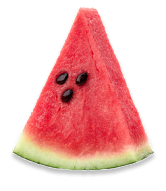Rise of Functional Beverages Over Traditional Alcoholic Drinks
The rise of functional beverages over traditional alcoholic drinks is a notable trend in recent years. This shift can be attributed to several factors, including increased health consciousness, the desire for novel experiences, and changing social norms. In this blog post, we'll explore why more people are opting for functional beverages over alcohol, delving into the health benefits, social implications, and the innovative landscape of these drinks.
1. Health and Wellness Movement
One of the most significant reasons for the surge in functional beverage popularity is the growing health and wellness movement. People are becoming increasingly aware of the impact of their dietary choices on their overall health. Alcohol, known for its negative health effects like liver damage, addiction, and its role as a carcinogen, is being eschewed in favor of healthier alternatives.
Functional beverages, often enriched with vitamins, minerals, probiotics, and natural extracts, offer various health benefits. These drinks can boost energy, improve digestion, enhance mental clarity, and even support immune function. This shift is especially prevalent among millennials and Gen Z consumers, who prioritize health and wellness more than previous generations.
2. The Sober-Curious and Mindful Drinking
The rise of the sober-curious movement, where people choose to abstain from alcohol temporarily or permanently for health or personal reasons, is another key factor. Mindful drinking, where individuals are more thoughtful about when and why they consume alcohol, is becoming increasingly popular. This trend is not about total abstinence but about making more health-conscious choices, where functional beverages fit perfectly.
Functional drinks offer a sophisticated alternative to alcoholic beverages. They cater to those who want to enjoy a social drink without the effects of alcohol. This aspect is particularly appealing for designated drivers, pregnant women, or anyone else who wishes to avoid alcohol but still partake in social drinking occasions.
3. The Search for Unique Experiences
Modern consumers are not just buying a drink; they are seeking an experience. Functional beverages often come with unique flavor profiles, exotic ingredients, and engaging stories behind their creation. This novelty is appealing to consumers who are constantly looking for new and unique products.
The rise of craft and artisanal beverage makers has also contributed to this trend. Small-scale producers are experimenting with local and unusual ingredients, creating drinks that are not just functional but also unique and artisanal. This aspect caters to the increasing consumer desire for authenticity and storytelling in their purchases.
4. Environmental and Ethical Considerations
Sustainability and ethical production are becoming crucial factors in consumer choices. Many functional beverage brands focus on sustainable sourcing of ingredients, eco-friendly packaging, and ethical business practices. In contrast, the alcohol industry often faces criticism for its environmental impact, including water usage, pollution, and unsustainable farming practices.
Consumers are increasingly aligning their purchasing decisions with their values, and functional beverages often align better with these eco-conscious and ethical standards.
5. Changing Social Norms
Social norms around drinking are changing. There’s a growing acceptance of not drinking alcohol in social situations. The stigma that once surrounded non-drinkers is diminishing, making it easier for people to choose non-alcoholic options without feeling out of place.
Additionally, the rise of social media and digital connectedness means that many people, particularly younger generations, are more conscious of their behavior and its public perception. Non-alcoholic functional beverages allow for social participation without the risk of the negative effects of alcohol, which can be amplified in the digital age.
6. The Role of Technology and Innovation
The beverage industry is at the forefront of technological innovation. From incorporating AI in flavor development to using advanced biotechnology to extract and synthesize beneficial compounds, technology is enabling the creation of more effective and appealing functional beverages. This constant innovation keeps the sector exciting and attractive to consumers looking for the latest in health and wellness trends.
Conclusion
The shift from alcohol to functional beverages is a multifaceted trend driven by health and wellness priorities, the sober-curious movement, the search for unique experiences, environmental concerns, changing social norms, and technological advancements. As consumers become more informed and mindful about their choices, it's likely that functional beverages will continue to grow in popularity, offering a diverse range of health benefits and experiences that align with modern lifestyle preferences.
This trend is not just a fad but a reflection of a broader shift in consumer behavior and values. As we move forward, we can expect to see more innovation and growth in the functional beverage sector, catering to the evolving needs and desires of health-conscious consumers.

























































